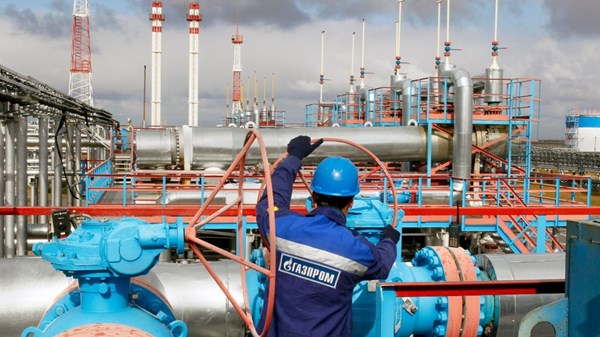Poland wins EU court appeal to limit Gazprom’s use of OPAL gas pipeline
Russian gas giant Gazprom has received a new blow in the European gas market, which left the Russian company without a third of the capacity of its key pipeline to the EU.
The European Court of Justice rejected Germany's appeal and supported Poland's position to limit Gazprom’s allowed capacity of the OPAL gas pipeline, which connects Nord Stream 1 with the gas transmission system of Central and Western Europe by 50%.
"In accordance with the EU treaties, EU energy policy is designed - in the spirit of solidarity among EU members - to secure the functioning of the energy market, ensure energy supplies to the EU, support energy effectiveness, develop new renewable energy sources and support mutual links between energy networks," the court said in a statement.
The court determined that “contrary to arguments presented by Germany, the compatibility of every EU document regarding energy policy should be evaluated with view to the principle of energy solidarity”.
According to the requirements of the EU third energy package, energy infrastructure facilities must be independent of companies producing electricity or energy resources. In other words, one company cannot be a gas supplier and pipe owner.
With regards to the OPAL gas pipeline, this meant that Gazprom will be limited to using no more than 50% of the pipeline capacity. Gazprom will have to provide access to the pipeline to alternative suppliers, which is physically impossible, because gas comes to it only from Nord Stream-1.
The capacity of OPAL is 36 billion cubic meters per year, the capacity of Nord Stream-1 is 55 billion cubic meters. Thus, without a key branch, Gazprom loses 33% of transit through the first line.
After many years of studying this problem, in 2016, the European Commission expanded Gazprom's access to the OPAL gas pipeline. The Russian company received the authority to exclusively reserve 50% of the pipe capacity and obtain through third party auctions all the remaining 50% of the transit capacity.
However, in 2019, this decision was protested by Poland. The European Court upheld the Polish lawsuit and banned Gazprom again from using more than 50% of OPAL.
In October 2019, Germany filed an appeal against this decision. Until the court’s final ruling the decision of the European Commission to allow Gazprom to use on the use 100% of OPAL’s capacity remained in force.
On 18 March this year, the European Court of Justice published the position of its Advocate General, Campos Sánchez-Bordona, which argued, inter alia, that the principle of European solidarity has a legal rather than symbolic meaning and may constitute a basis for adjudication in contentious cases. On this basis, Sánchez-Bordona at the same time stated that Germany’s appeal should be rejected.
Gazprom is facing a similar problem with Nord Stream-2.
The pipeline operator, Nord Stream 2 AG, asked the German gas market regulator for an exception to the rules, but was refused. In June, the company appealed the decision in the Supreme Regional Court of Düsseldorf.
